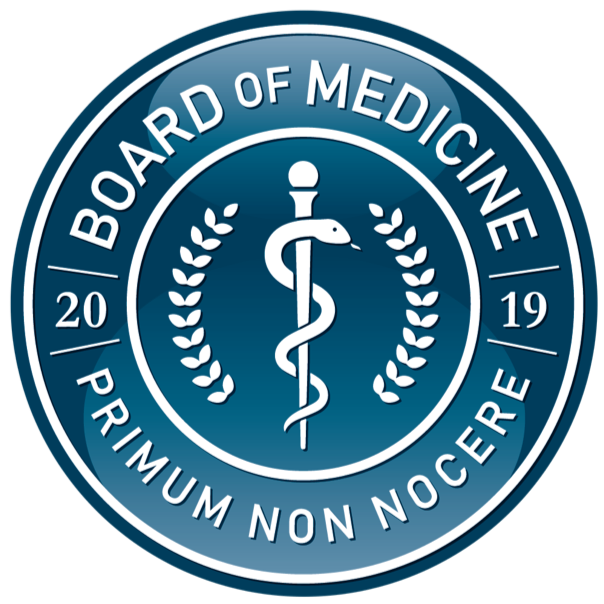What is The Board of Medicine?
From nutrition and plant medicine to neurosurgery and psychiatry, The Board of Medicine leaves no stone unturned. The Board of Medicine is a nonprofit 501(c)(3) consortium of world-renowned physicians, scientists, and subject matter experts working together to provide access to evidence-based, peer-reviewed and data-driven knowledge to ensure the safety of medicine for everyone from elite athletes and military veterans to patients and caregivers.
The Board of Medicine is on a mission to improve public health through evidence-based practices by enhancing the safety of treatments for both patients and health care providers alike.
First, Do No Harm.
Much of our current practice of medicine is in direct violation of the Hippocratic Oath. One powerful example is that we have seen a startling rise in the number of deaths and disabilities due to over-prescription and misuse of opioid narcotics and benzodiazepines over the last 20 years. We have also seen a spike in the number of people diagnosed with treatment-resistant chronic illnesses, specifically mental illnesses. The pharmaceuticals often prescribed to treat these chronic conditions have many adverse or unwanted effects that often get worse the longer the medicine is taken. Some of these side effects are unfortunately permanent.
From a critical analysis of the literature, it has become clear that the number needed to treat (NNT), or how many people need to be treated with a medicine to see a clinically significant reduction in symptoms, of most prescription medicines used to treat chronic mental illnesses and chronic pain disorders is very high. What is actually more frightening is that the number needed to harm (NNH), or how many people need to be treated with a medicine to see a clinically significant side effect, is actually very low. What this means, in the case of SSRI’s or opioids for chronic pain as an example, is that these medicines are more likely to cause harm than they are to result in symptom relief when prescribed for long-term use.
This practice is in direct violation of the Hippocratic principle of Primum Non Nocere or First, Do No Harm. This principle was put into place by both the founding members of Western and Eastern Medicine practices alike, and it was mentioned frequently by Hippocrates, for whom our oath was named. It is unethical to treat a patient with a medicine that has significant risk when the available non-invasive and non-pharmacologic options have not been completely explored and exhausted. This is particularly critical when working with vulnerable populations (e.g. children, pregnant women, geriatric patients, and veterans) who are often not good candidates for prescription pharmaceuticals and who often receive prescriptions that are off-label.
Choose how you heal.
Thankfully, plant medicines, like many herbs (e.g., valerian root, turmeric, ashwaganda), hemp derived cannabinoids (e.g., CBD, CBDA, CBN), and therapeutic mushrooms are extremely safe when used and dosed properly. There are other techniques, such as breath work, meditation, yoga, massage, acupuncture, and wearable technologies that have few to no side effects and are also powerful treatment options, particularly for those who are not good candidates for medicine. It is critical for us to be aware of these tools in our toolbox, and specifically their risks and benefits, so that we can understand when they may be good choices over riskier treatment options. This is how Hippocrates originally described medicines that heal and how he intended medicines to be used for treatment.
The Board of Medicine has focused on developing the world’s first peer-reviewed evidence-based guidelines for the use of such medicines, techniques, and technologies that are currently unregulated in the market because so many of them are safe and effective when used correctly. Science is now demonstrating how and why these tools work. The better we understand these tools, the better care we can deliver to ourselves and our clients. The Board of Medicine is proud to bring this essential knowledge to you so that, finally, you can choose how you heal yourself and others.
Dr. David M. L. Rabin MD, PhD
Board-Certified Psychiatrist & Neuroscientist
Executive Director
The Board of Medicine
Contact us.
Please reach out to us to get involved with the Board, sign up for our trainings, and stay up to date on our latest developments.
info@theboardofmedicine.org

